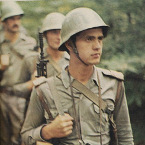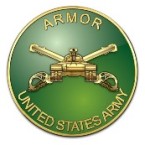CCIP-subsim
Posts: 695
Joined: 11/10/2015
Status: offline

|
quote:
ORIGINAL: exsonic01
I agree.
Chain of command, repetition and confirmation along chain of command, battlefield noise, combat situation stress, low quality of voice/signal from radio (many reasons are possible. Jamming, geometry, interference from other equipments...), reliability of cold-war-era radios, sometimes bottleneck of huge communication traffic in the middle of combat, use of cipher and code instead of plain sentence, etc and etc... All of those will make even "simple" command would take good several minutes to fully convey and confirm.
==========
As army veteran (not US army though) I have a little experience of old radios, including AN/PRC-77. 77 was nasty. THAT THING WAS HEAVY that is what I still clearly remember. "P" in PRC means portable, technically it was portable, but if you are the person who carries it.... anyone would immediately feels that it is not that portable at all. Its weight is lighter than typical full backpack weight, but its design was the problem: it was not that "human-friendly" I would say, because 77 hurts my back and shoulder more than my heavier backpack.
77 was not that reliable in mountains, valleys, and under the bad weather (it is supposed to be operational at all environments but well, that is clearly overadvertised). It worked OKish for most of the time, I mean, I was OK with this radio for 80% of my experience. But time to time, radio communication was... I would say, not satisfactory, about 20% of my experience. Depending on operation conditions and geometry, sometimes it was too hard to recognize the voice, mostly statics plus murmuring, just too low quality voices. With cipher and code use only, this low quality voice issue makes it impossible to communicate with the opponent. (I remember, time to time me and my boss had to deduct the message like a detective from what we heard) Then I had to rely on relay communication from other units, or I had to run to the high ground, literally. I was in recon unit, and for a recon, sometimes communication is more valuable then life.
But for me, it was really really bad experience to being yelled at or getting screwed by angry CO because of communication issue, while IT WAS NOT MY MISTAKE BUT BECAUSE OF GOD DAMN RADIO!!!
So, I'm not surprised if someone took several minutes to issue and confirm "simple" orders like turn to 10 o'clock direction or move 5m forward. Sometimes if CO is really busy with other communications, you need to wait for your turn, and sometimes your CO forget XD. Welcome to the 'real' radio communication in battlefield XD
If AB become really realistic, then order delay can be really harsh. I guess current model is kinda easier setting than what would be worst scenario to happen in battlefield.
Great observations - and that seems to be more or less a universal issue. If anything, it's amazing that these analog comms systems actually managed to work a large portion of the time. If anything - Western forces got the better end of that deal. My dad was a radio man in the Soviet army in '77-78 - enough said! The Warsaw Pact's radio sets at the time were actually pretty robust and resisted jamming pretty well, but were heavier and lagged behind similar Western sets in every other aspect of performance. But the bigger problem was a much poorer ability of the Soviet army to maintain and use complex radio comms nets in the field - which in no small part was because of a lack of a core of professional army NCOs, a doctrine problem really. Instead, 99% of all the work on the net was carried out by guys like my dad - who was technically a sergeant, but in practice all that meant was an extra week of general leadership training, and a couple of weeks training in his job as radio man, and then off he went (manning a remote relay post, in his case). With limited training and given limited initiative - equipment often broke down and didn't get fixed until someone better-trained didn't come down and fix it, and radio discipline was poor. This, coupled with often very top-heavy command structures, really did not bode well for the average Soviet army unit if they were to go into combat. Their comms net would've crumbled very quickly.
And well, while researching the Chechnya mod - I basically came to the conclusion that this was exactly what happened during the infamous New Year's assault, where I'd say that the collapse of comms was probably the single biggest tactical factor in the bad outcome (though there were a whole slew of operational and strategic factors that doomed it from the start). And it was defeated and jammed there largely by commercial-grade radio equipment!
Anyway, I think the real reason the delay seems unfair is the way units behave when out of contract - they don't have a whole lot of initiative on their own, and the way they react while waiting for orders to come through often doesn't quite feel like how well-trained troops might. That's probably something to be fixed by a more nuanced and functional ROE that gives a little more control to the player over what units will do on contact/under fire, regardless of how long they have to wait for comms to come through.
|
 Printable Version
Printable Version













 New Messages
New Messages No New Messages
No New Messages Hot Topic w/ New Messages
Hot Topic w/ New Messages Hot Topic w/o New Messages
Hot Topic w/o New Messages Locked w/ New Messages
Locked w/ New Messages Locked w/o New Messages
Locked w/o New Messages Post New Thread
Post New Thread